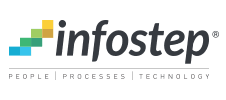Business Intelligence Systems
Business Intelligence (BI)

Turn information into business intelligence and guide your business towards a successful future

What is Business Intelligence (BI)
Business Intelligence (BI) software is a set of tools used by companies to retrieve, analyze, and transform data into useful business information.
It filters and leverages business data to transform it into actionable information that informs strategic and tactical business decisions, while protecting against future business risks.
There are many reasons why companies choose business intelligence solutions. If you are considering this idea for your business, you may be wondering if it is worth the time, effort and expense to add it to your existing software suite.
Companies that have already implemented it agree that the business intelligence system has helped them the most with faster reporting, planning and analysis.

How It Works
With the click of a button, it gathers analytical data to better understand your customers. Better predict your revenue growth, but also protect yourself from future business risks.
Data analysis is presented in reports, summaries, dashboards, graphs, charts and maps to provide users with detailed information about the state of the business.
Benefits

Fast and accurate reporting
Employees can use standard or custom reports for their department, using a variety of data sources, including financial, operations, and sales data. These reports are generated in real time and use the most relevant data, so businesses can act quickly.
Users can play with different variables or access information even faster.

Valuable business insights
Businesses can measure employee productivity, revenue, overall success, and performance for specific departments. It can reveal strengths and weaknesses, as business intelligence tools help your company understand what’s working well and what’s not. Setting up alerts is easy and can help track these metrics and help busy executives get the data that matters most.

Competitive Analysis
The ability to manage and manipulate large amounts of data is a competitive advantage in itself. In addition, budgeting, planning, and forecasting are an incredibly powerful way to stay ahead of the competition. You can also track sales and marketing performance to differentiate your products and services if needed.

Better data quality
Data is rarely “neat” and there are many ways in which inconsistencies and inaccuracies can appear - especially with a “database” that has been compromised. Businesses that take care to collect, update, and create quality data are usually more successful.
With this software, you gather data from different sources for a more complete picture of what is happening with your business.

Increased Customer Satisfaction
Understand your customers’ behaviors and patterns.
Most companies receive customer feedback in real time, and this information can help businesses retain customers and reach new ones. Identify buying patterns, anticipate your customers’ needs, and offer better service.

Identify market trends
Identifying new opportunities and developing a strategy with supporting data can give businesses a competitive advantage, directly impact long-term profitability, and provide the full scope of what’s happening. Employees can leverage external market data with internal data to detect new sales trends by analyzing customer data and market conditions, as well as identifying business problems.

Increased operational efficiency
Tools unify multiple data sources, which help to organize a business as a whole, so that managers and employees spend less time tracking information and more time producing accurate and timely reports. Armed with up-to-date and accurate information, employees can focus on their short- and long-term goals and analyze the impact of their decisions.

Improved, accurate decisions
Competitors move quickly, and it’s important for companies to make decisions as quickly as possible. Failure to address issues with accuracy and speed could lead to lost customers and revenue. Organizations can leverage existing data to provide information to the right stakeholders at the right time, optimizing decision-making time.

Increased Revenue
Increasing revenue is an important goal for any business. Data from BI tools can help businesses ask better questions about why things happened by making comparisons across different dimensions and identifying sales weaknesses. When organizations listen to their customers, monitor their competitors, and improve their operations, revenue is more likely to increase.

Lower Margins
Profit margins are another concern for most businesses. Fortunately, BI tools can analyze inefficiencies and help expand margins. Aggregated sales data helps companies understand their customers and empowers sales teams to develop better strategies about where budgets should be spent







